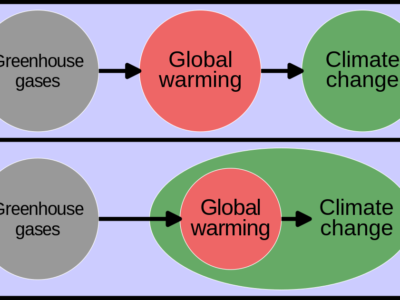Climate Change
Electric Shared Mobility:
Program Design Elements Can Produce More Equitable, Durable, and Successful Projects
Shared mobility—an umbrella term for any transportation mode shared among multiple passengers—has the potential to accelerate transportation electrification, air quality, and greenhouse gas reduction goals, meet the needs of underserved communities that most lack mobility access, and advance broader mobility equity goals. CLEE’s report, Electric Shared Mobility: California Lessons Learned for Equity in Program Design, …
Continue reading “Electric Shared Mobility:”
CONTINUE READINGThe Harris-Trump Debate and Environmental Policy
In the ABC News debate, both candidates were asked directly, “What would you do to fight climate change?” Fracking and energy policy got most of the focus.
While abortion and immigration took center stage during last night’s presidential debate in Philadelphia, climate change and energy policy were referenced throughout the more than ninety minutes, in stark contrast to that Biden-Trump debate in June in which climate change was largely relegated to one question. From the very beginning of the debate, Trump attempted …
Continue reading “The Harris-Trump Debate and Environmental Policy”
CONTINUE READINGEnvironmental Lawyering Today
If you’d like to defend the environment as a lawyer, you should take a broad view of what that means.
To law students: The Earth not only needs a good lawyer, it needs many kinds of good lawyers doing many kinds of work. Whatever area of law interests you most, there’s no reason why you can’t be one of them.
CONTINUE READINGEnvironmental Bills at the 10-yard Line
Now that the legislative session has wrapped, the ball is in the Governor’s hands. Here are some of the environmental bills he could sign by September 30.
The California legislative session wrapped up on Saturday, August 31st at midnight, with legislators working until the clock struck twelve. As usual, it was an exciting night to watch. Unlike most years, there seemed to be more of a rush at the end to reach agreement on some of the major issue areas, as well …
Continue reading “Environmental Bills at the 10-yard Line”
CONTINUE READINGRightwing Authoritarianism vs the Environment
In the U.S. and elsewhere, rightwing authoritarians oppose climate action. That’s not a coincidence.
Project 2025 favors authoritarian presidential rule. It also wants to destroy environmental regulation, especially climate law. That’s not a coincidence. The combination of authoritarianism, extreme conservative ideology, and anti-environmentalism is common globally, not just in U.S. politics. There’s no logical connection between a belief in authoritarian government, upholding traditional hierarchies, and views about protecting the …
Continue reading “Rightwing Authoritarianism vs the Environment”
CONTINUE READINGCalifornia Pulls Back On Sustainable Aviation Fuels
Air Resources Board abruptly withdraws proposal to mandate low-carbon jet fuel
California regulators had an opportunity this year to be a global leader on requiring airplanes to use low-carbon jet fuel. But the Air Resources Board announced earlier this month that it will back off from its earlier proposal to require jet fuel providers to decarbonize, through the agency’s landmark low carbon fuel standard program. Why …
Continue reading “California Pulls Back On Sustainable Aviation Fuels”
CONTINUE READINGTrump’s Replacement for Project 2025: The “Other” MAGA Plan
It’s not Project 2025, but the “America First Agenda” is worse in some ways.
From the perspective of those who believe in environmental protection, the Trump team’s switch from one rightwing think tank to another doesn’t seem to be much of an improvement. They would both set environmental law back by decades.
CONTINUE READINGLet’s Make Tomorrow “National Climate Awareness Day”
Here’s the case for setting aside a day to think about climate change, and why that day should be Aug. 23
Creating National Climate Awareness Day would send a message about the importance of climate change. It would also provide an occasion to educate Americans about the issue. If it can also celebrate modern science, and the contributions of women to science, all the better. And all it would take is a Presidential proclamation.
CONTINUE READINGThe Ins and Outs of Kennedy’s Environmental Positions
His campaign website is a mashup of very different perspectives, from “back to the earth” to tech bro.
Working through his website seemed to reveal a broad effort to combine distrust of government and big business), belief in free markets, and valuing nature and the land for their own sakes. Kennedy offers an unusual blend of Sixties “back to the land” environmentalism with Tech Bro libertarianism.
CONTINUE READINGIn Their Own Words: Climate Policy and the Party Platforms
The GOP and Democratic Platforms take starkly different approaches.
The two major parties have very different views about energy policy and climate change. Here are their official views, in their own language. Compare and contrast!
CONTINUE READING












